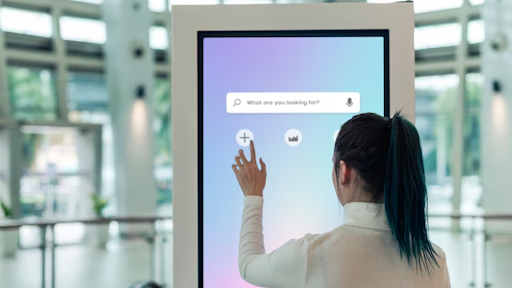Recent graduates tend to find it hard to fill the gap between classroom lessons and work life. The job market needs some orientation, exposure and some on-the-job support. Emirati hiring agencies assist in this process, as they introduce young talent to the employer, and provide career development opportunities, as well as make sure that graduates can easily enter their first professional jobs.
Career orientation and realistic expectations
Emirati hiring agencies usually initiate mentored career counselling that targets new graduates. They evaluate education, transferable skills, and personal interests to match candidates with viable entry-level opportunities. Counsellors provide practical advice on CV structure, interview skills, and professional presentation that preloads employability. These services help clarify employer expectations and industry standards, thereby reducing early-career mismatch and minimizing job search time. Agencies provide common paths of development within industries and outline short courses that enhance competitiveness.
They also establish achievable milestones to ensure graduates know what to do next to enhance their chances and accept appropriate entry jobs. They conduct practice interviews in time-bound conditions and give recorded feedback to enable candidates to perfect answers and body language. They are supplied with workshops on communication, time management, and workplace etiquette and are advised by mentors on small projects or volunteer opportunities to develop portfolios. The agencies also provide direct employer feedback on shortlisted candidates, allowing iterative refinements and realism in salary negotiations and preparedness.
Skills development and targeted training
Agencies provide access to specialized skills training that employers need, integrating technical training and work skills. They also see gaps in an academic record of a candidate and suggest short, employer-desirable modules to fill in these gaps. Short courses, online micro-credentials, and practical assignments allow graduates to demonstrate skills as opposed to theoretical knowledge. The soft skills are addressed in a structured form in scenario-based training workshops that mimic workplace interactions, collaboration, and communication with clients. Assessment tests would be used to benchmark progress and inform individual learning strategies, which would be reported back to hiring managers as necessary.
They frequently arrange jointly-sponsored or subsidized training with employers and educational providers. Placement in apprenticeship-style jobs and short internship enable graduates to practice their new skills instantly under supervision, facilitating the shift to full employment. Industry mentors provide practical guidance in problem-solving, and the project-based work creates digital portfolios that demonstrate readiness. Multicultural workplace requirements are covered by language support and workplace etiquette modules. They deliver quantifiable results to stakeholders.
Job matching and placement services
Placement teams have direct connections to employers and develop entry-level opportunities that match graduate profiles, simplifying the candidate search. They narrow down candidates based on essential role requirements and cultural fit considerations through structured screening and competency mapping. Agencies coordinate with employers, organize interviews, feedback cycles, and reasonable expectations related to probation periods. They assist in negotiation of initial offers, explaining benefits, the scope of the job, and development opportunities to enable candidates to make informed decisions.
Certain teams analyze data of previous hires to determine probable success and suggest positions with greater conversion potential. Within the initial months after placement, agencies may do a follow-up to address mismatches, coach on performance goals, and help with further upskilling where needed. They also organize temporary-to-permanent placements and campus activities where graduates meet various employers. The privacy is guaranteed through digital profiles and reference checks, which verify candidate claims. Agencies give advice on how to get into the career, including taking stretch roles to learn the skills.
Networking and employer connections
Agencies build networks of contacts across industries, exposing graduates to recruitment managers and project heads through carefully organized events and personal recommendations. They arrange industry briefings, employer panels, and sector-specific job fairs where newbies can be informed about workplace culture and short-term expectations. Mentees also have access to alumni and experienced professionals who offer guidance and open informal lines of internships or short projects. Agencies bridge this visibility gap that most graduates experience by introducing candidate profiles to decision-makers.
Targeted introductions can result in trial assignments and practical tests that prove suitability better than a CV would on its own. Such relationships hasten access to workplace networks that facilitate longer-term career advancement and subsequent mobility. They collect employer input to ensure better preparation and focus on SMEs as well as bigger companies to expand choices. Briefings demystify the selection schedules and priorities, placing graduates in better pathways to openings and on-the-job experience about the sector and organize brief workplace observation visits.
Onboarding support and early performance coaching
Agency services extend beyond placement by offering onboarding materials and initial coaching so that graduates can deliver what employers want. They collaborate with supervisors to establish definite performance goals and proposed milestones during the probation period, which helps prevent misunderstandings. Coaching sessions are aimed at prioritisation, time management, task follow-through, and effective communication within teams. When problems occur, the agencies negotiate between the employer and the graduate to find a constructive way instead of immediate separation. This reduces turnover and enables employers to recoup early training costs.
By tracking the progress and prescribing micro-learning, agencies enable newbies to transform initial assignments into tangible outcomes to future promotion. They also arrange probation review meetings and make constructive reports that candidates can use to reflect on their professional practices. When necessary, agencies propose lateral moves or short term assignments to better match roles to strengths. They also provide data on workplace rights, benefits management and channels of further certification to facilitate promotion possibilities.
Pathways to sustainable careers
Agencies guide the graduates through the transition between entry-level opportunities and long-term career paths, including planning future steps and skills needed. They offer labour-market intelligence on upcoming areas and mobility opportunities, recommending the best time to undertake specialised training or management careers. Career mapping tools enable candidates to see 2-to-5 year paths, incorporating lateral moves to diversify experience and internal promotion paths. Support can also include entrepreneurship advice to those who may want to start up, with referrals to incubators or small-business counsellors.
Agencies build networks of employers with entry-level positions linked to longer-term advancement and lobby systematic growth programmes in organizations. This way, graduates tap into a wider range of Emirati employment opportunities, and they develop skills and networks that support career resilience. They monitor alumni performance to improve services and suggest continued professional development and prior learning recognition to ensure graduates translate workplace experience into future qualifications and promotions.
Overall, targeted assistance provided by special agencies allows new graduates to find stable employment more efficiently. Novices also gain clearer career beginnings and faster professional learning through counselling, skills development, practical placements, and continued employer interaction. These coordinated interventions have a higher possibility of turning first jobs into stepping stones towards longer-term career development as opposed to stepping stones.








